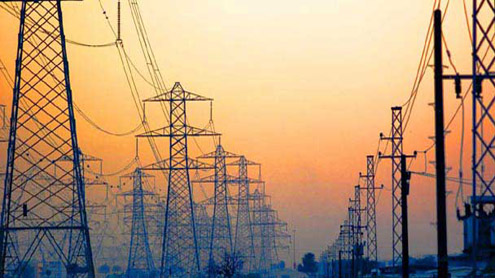The dues to be received by the power sector increased by Rs44 billion in the first two months of the current fiscal — an average addition of over Rs700 million a day — raising the total tally to a staggering Rs556bn.
[contentblock id=1 img=adsense.png]
According to figures released by the Pakistan Electric Power Company (Pepco), the sector started the fiscal with the arrears of Rs512bn, which rose to Rs556bn by the end of August.

During July and Aug, it issued bills of Rs216.691bn but could recover only Rs173.65bn — thus adding over Rs44bn to the tally. According to power sector experts, the most unpardonable feature of the current receivables is “private default” or dues not paid by private subscribers. It indicates the sector’s inability to recover bills from influential individuals. Of the Rs556bn, the “private default” amounts to Rs384.605bn. Of the total accumulation of around Rs44bn, Rs30bn come from the private default. During the two months, the sector issued bills of Rs183.98bn to the private sector but could recover only Rs155.042bn. “This is criminal, to say the least,” says a former head of Pepco. “It speaks volumes about the sector’s inefficiency and incompetence of those managing it.” [contentblock id=2 img=adsense.png]
There may be some justification for “official default” because government departments receive funds slowly and pay their bills in small instalments. The power distribution companies find it difficult to cut off supply to government offices. But this is not the case with private consumers, which face immediate disconnection if they fail to pay bills. According to the data, the Sindh government is the single largest defaulter as it has to pay dues of Rs59bn, which increased from Rs56bn in July to Rs59.48bn by the end of August. The Federally Administered Tribal Areas fall second with Rs36bn dues and the Karachi Electric follows closely behind with Rs32.78bn arrears, with Rs4bn dues of the two months. The Khyber Pakhtunkhwa government falls next in line with Rs20bn default. The total arrears of the Azad Jammu and Kashmir government, including official and private default, stand at Rs40.55bn.
“July and Aug were also months when complaints of gross overbilling were common, which were found true,” says a former head of the National Transmission and Dispatch Company (NTDC). Almost all distribution companies issued inflated bills to consumers and are now facing inquiry for overbilling to the tune of Rs70bn. If the Rs70bn are added to the tally of fresh accumulation, the total default would be over Rs100bn during the two months.
[contentblock id=3 img=adsense.png]
The entire sector had gone berserk as far as management was concerned, the former chief of the NTDC said. “The heads of all important companies are vulnerable to whims of the political leadership because they have been posted on ad hoc basis.” He said the heads of the remaining companies were frequently changed to keep everyone off balance. Under the circumstances, he said, such accumulation of arrears was a natural outcome of the present policies.











